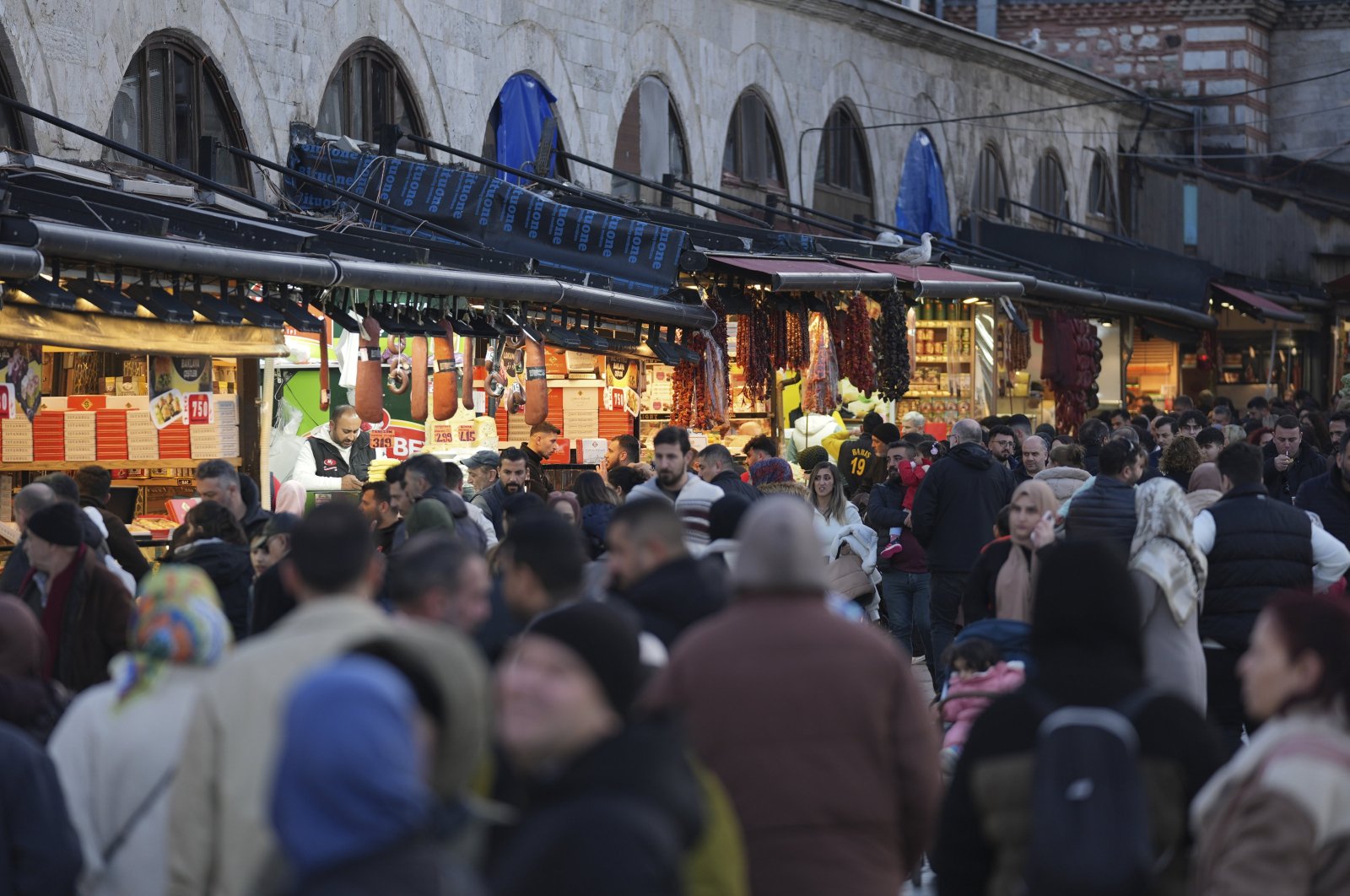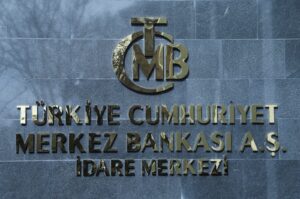Inflation in Türkiye rose less than expected in March but still gathered momentum, confirming that price gains remain the biggest challenge, which proved to be among the key factors during the nationwide local elections at the weekend.
Consumer prices rose 68.5% compared with a year earlier, above February’s 67.07% annual pace, the Turkish Statistical Institute (TurkStat) said on Wednesday.
Shortly after the data release, Treasury and Finance Minister Mehmet Şimşek said recent monetary and fiscal tightening would help anchor inflation expectations and support disinflation.
The increased reading followed Sunday’s municipal elections, which placed the ruling Justice and Development Party (AK Party) behind the main opposition, the Republican People’s Party (CHP), for the first time ever. Many blamed the outcome on the soaring costs of living.
Prices rose 3.16% from February to March, TurkStat said, below market forecasts and lower than 4.53% and 6.7% in the previous two months as fallout from wage hikes and other administered price rises at the start of the year faded.
Pointing to the slowing month-over-month reading, Şimşek said that “monthly inflation decreased in line with our forecast” and reiterated the government’s determination to ensure price stability.
Both government and analysts say inflation is likely to continue rising through mid-year before entering a steep downward trend in the second half.
The annual rate was expected to be 69.1% in March and the monthly rate 3.5%, a Reuters poll showed. The survey expects the annual reading to fall to about 44% by year-end.
The central bank sees it at 36% after peaking at around 75% in May.
In an Anadolu Agency (AA) poll, economists’ average expectations for monthly inflation were 3.67%. The median estimate of 20 economists for the annual rate was 69.32%.
President Recep Tayyip Erdoğan called the electoral setback a “turning point” and stood by the current economic policies, which he says will yield positive results.
Addressing an AK Party meeting on Tuesday, Erdoğan acknowledged that high inflation greatly impacted voter behavior, according to a readout from the party sources.
“Particularly, the pensioners suffered a loss of welfare, and efforts to alleviate those hardships fell short,” the president said.
The March consumer price inflation (CPI) data showed the biggest monthly rises in education, up 13.1%, and communication at 5.65%. Food and non-alcoholic drinks, housing, restaurants and culture price measures also drove inflation.
The highest annual increase was in education, at 104.07%, followed by restaurants and hotels, at 94.97% and health, at 80.25%.
The domestic producer price index was up 3.29% month-over-month for an annual rise of 51.47%, the data showed.
The list of factors that the monetary authority says are still feeding inflation includes a weak Turkish lira currency, down 40% against the dollar in a year, a massive jump in the minimum wage in January, and surging costs for food and fuel.
“We knew that this election was going to be harder than others because we are applying a very strict fiscal policy that may taste bitter today, but we know that it will help in the future,” said Harun Armağan, an AK Party central decision board member and vice chair of foreign relations.
Top priority
The Central Bank of the Republic of Türkiye (CBRT) launched an aggressive monetary tightening cycle and lifted borrowing costs from 8.5% after last year’s presidential and parliamentary elections, reversing the yearslong low-rates policy.
Last month, the central bank surprised analysts by hiking interest rates by another 500 basis points to 50% due to what it called a deteriorating inflation outlook. It said the policy would be further tightened “in case a significant and persistent deterioration in inflation is foreseen.”
Nicholas Farr of Capital Economics commented that “further monetary tightening lies in store … a more concerted effort to tighten fiscal policy will be needed too.”
The government has also vowed to control spending to brake activity and inflation.
The central bank has recently moved to tighten policy, including action on reserve requirements, prompting some banks to either reduce loan limits or even stop offering loans. The bank also raised the maximum interest rate on credit card cash withdrawals.
“All these developments … will anchor inflation expectations and support the disinflation process,” Şimşek wrote on social media platform X, formerly known as Twitter.
“We will do whatever is necessary until we reach our goal of price stability, which is our top priority,” he added.
CBRT Governor Fatih Karahan on Tuesday said the central bank would maintain tight monetary conditions that he says will significantly and permanently lower the core trend of monthly inflation.
“Our results stance in monetary policy will lead us successfully to the targeted path of disinflation,” Karahan said during a meeting with the management of the Banking Association of Türkiye (TBB). He reiterated expectations for a significant downward trend in inflation as of the second half of this year.
Şimşek said additional tightening in fiscal policy would contribute significantly to balancing demand while further increasing external financing opportunities will strengthen macroeconomic stability.
The next round of voting is in four years’ time, offering a window for potentially painful steps to restrain price growth.
“We have a lot of time to make all the structural reforms” but, “I think we’re going to see a slowdown in the economy” with high rates and tight spending, said economist Murat Sagman, founder of Sagam Strategy Advisory.
The challenge for the central bank and Finance Ministry is “to go to a soft landing (rather) than a hard landing,” he added.
Such terms distinguish clamping down on price growth without completely slamming the brakes on activity versus inflation-fighting measures triggering a severe recession.
The government must follow through on its promises to slash spending to flank the central bank’s efforts to slow price growth, Sagman said.
“It’s the only way to lower inflation, to make the whole policy tight for a certain period,” he said.




















































Be First to Comment